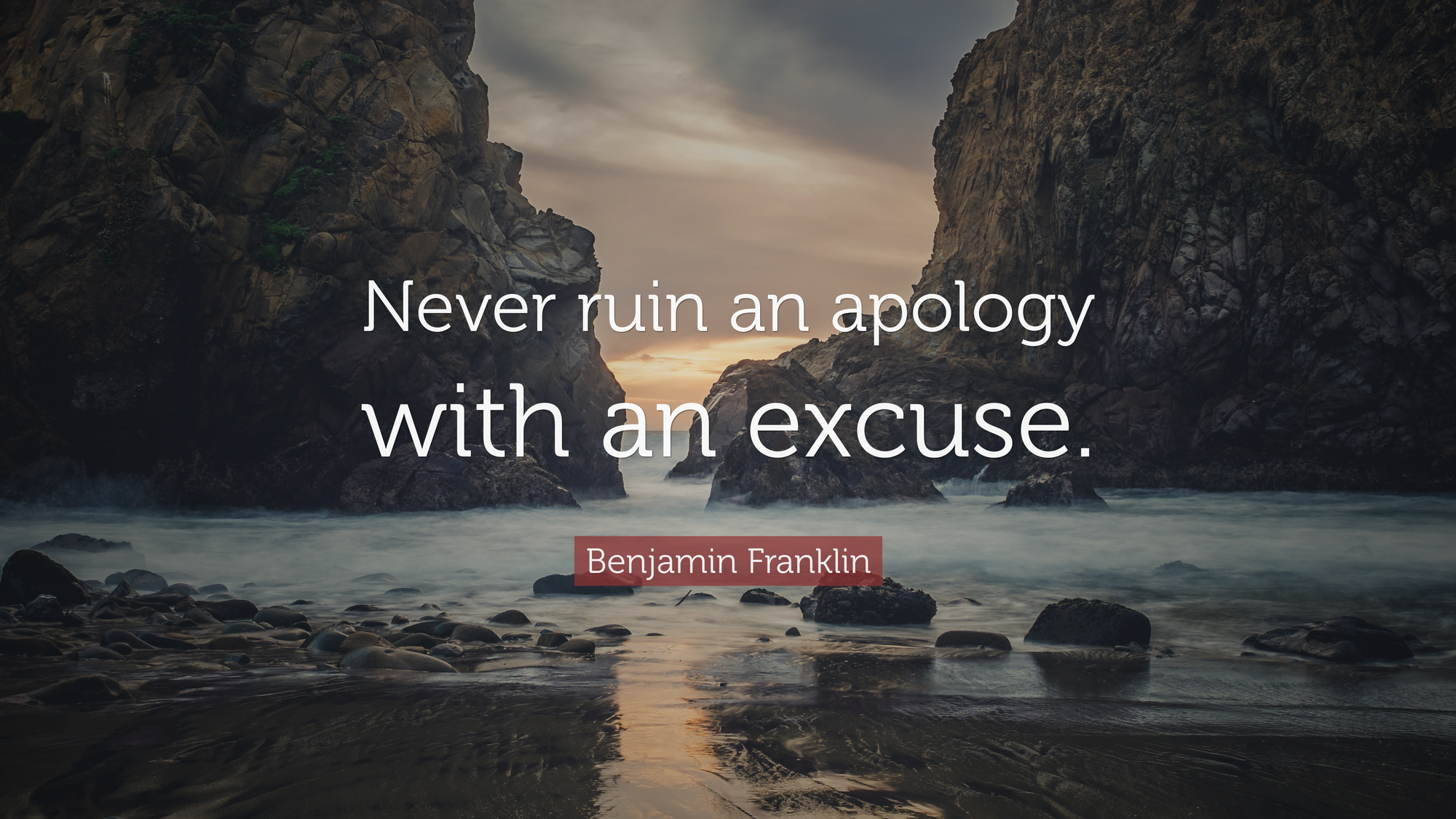The Power of "I'm Sorry": 3 Benefits of Apologizing
A heartfelt apology has the potential to transform lives.

Yesterday, I had to apologize to a co-worker.
We had agreed to a certain direction on a project, but I didn’t write it down. I was focused on a few other things and didn’t take thorough notes in our meeting.
Over Memorial Day weekend, I forgot about what we agreed to. So when we came back to work on the project, I reversed a decision we had agreed on. This didn’t go well. I created a lot of confusion around the project.
As I was digging into what happened later in the week and I realized my mistake. I had nowhere to hide and no excuse - I had to apologize.
First thing Monday morning, I scheduled a meeting so we could talk. I apologized for the confusion I caused. I went on to say that it wasn’t intentional, but an unfortunate oversight. No excuse - just that I was sorry. Thankfully, they accepted it graciously and we agreed to continue moving forward more effectively.
It wasn’t fun, but it was the right thing to do.
Saying sorry is never something you look forward to, but it is powerful for both you and the person you wronged.
Some people say that if you apologize you look weak or like you don’t know what you’re doing. While that may be the case if you did nothing wrong, when you have made a mistake, it’s important to own up to it.
If you’ve wronged someone else, it’s not something to gloss over or hope they just forget about it. Not apologizing doesn’t help you or the person you’ve wronged.
Giving a since apology always has a significant impact.
Here are 3 benefits of giving a sincere apology when you’ve done something wrong:
- Improves Self-Awareness: Apologizing requires self-reflection and accountability. To apologize sincerely, you must first recognize and take responsibility for your mistake. This process of self-examination and being accountable for your actions increases self-awareness and emotional intelligence.
- Repairs Trust: When you apologize, you validate the other person’s feelings and perspectives. When they feel heard and understood, you build trust. Taking it a step further, committing to change demonstrates you are willing to rebuild trust through your behavior.
- Builds Self-Respect: Sincerely apologizing and making amends reduces feelings of guilt, shame, and anxiety that come from whatever you did that was wrong. Having the courage to admit mistakes and apologize (even if you feel embarrassed) breeds self-respect.
Even though apologizing isn’t any fun, its necessary when you’ve wronged someone else.
A sincere apology rebuilds trust, strengthens connections, and promotes self-awareness.
If you have kids, it has even more benefits. Witnessing parents apologize teaches kids essential skills and values like owning up to mistakes.
Ultimately, having the courage to apologize is a life skill everyone needs.

This week, think about someone you may have wronged and need to apologize to.
For an effective apology, follow these four steps:
- Acknowledge What Happened: You must express understanding and ownership of what we did that was hurtful. Use “I” statements to highlight you are taking ownership. Don’t shift responsibility onto the other person - its your job to clean up your side of the street.
- Be Specific: This is an opportunity to show empathy for their hurt and suffering. “This was thoughtless of me and caused you to worry and feel disrespected. I’m sorry.” Be authentic and humble, and don’t apologize with an ulterior motive.
- Clarify Change: Tell the person what you’ll do to make things right. Sometimes what’s been harmed are feelings, rather than something tangible (such as a dented car that can be repaired). You can even ask the other person what they would like from you.
- Build Trust: True apologies go beyond words. How can you ensure that the offense won’t be repeated? Be realistic and don’t make overly ambitious promises that you can’t keep. Ensure you follow through on your promise so the other person doesn’t question your trustworthiness and commitment to change.
Thanks for reading! I hope you enjoyed this edition of The Action Architect.
Remember to take action to make your future self proud.

